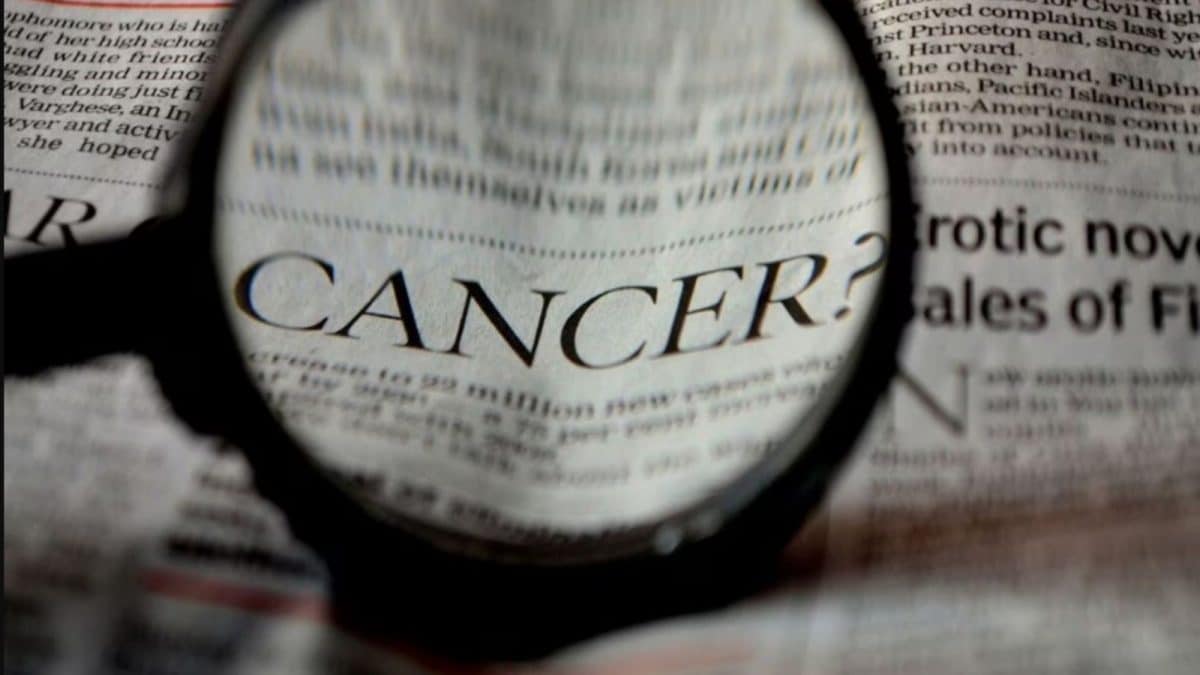Last Updated:
Cancer Cases In Young Adults: A rising number of healthy young adults are facing late-stage cancer diagnoses raising urgent questions about genetics, environment, and awareness.

Why are more healthy young people being diagnosed with late-stage cancer? Doctors uncover the hidden risks and the urgent need for awareness.
Cancer Cases In Young Adults: In recent years, oncologists across the globe and increasingly in India are witnessing a troubling phenomenon: healthy, active young adults being diagnosed with late-stage cancers. Despite being associated with lifestyle diseases or older age, cancers like breast, colorectal, gastrointestinal, cervical, and oral cancers are striking individuals under 50 with alarming frequency. Dr. Sowmya Korukonda, Consultant, Surgical Oncology, Apollo Cancer Centre, Hyderabad unfolds the mystery:
The Unfolding Mystery of Early-Onset Cancer
Cancer is fundamentally a genetic disease, caused by mutations in the DNA that trigger uncontrolled cell growth. Traditionally, these changes accumulate with age, but today’s younger generations are experiencing early-onset cancers at rising rates since the 1990s. Breast cancer remains the most common in younger patients, but colorectal cancer, which carries the highest mortality in this age group, is on the rise as well.
Researchers call this the “birth cohort effect” those born after the 1960s appear to carry a greater lifetime risk of developing cancer, possibly due to exposure to as-yet-unidentified environmental triggers. While obesity and sedentary lifestyles are established risk factors, they do not fully explain the surge, as even active, health-conscious individuals are being diagnosed.
Stories from the Frontline
For oncologists, the reality is heartbreaking. Dr. Korukonda recounts seeing newly married brides, lactating mothers, and young professionals ignoring breast lumps until they became advanced tumors. Oral cancer in young drivers with tobacco use is common in India, but increasingly, even non-tobacco users are presenting with aggressive oral malignancies.
“Young patients often don’t undergo screening, as most tests are recommended for those above 40,” she explains. “They present late because early symptoms are dismissed, and by the time generalized symptoms appear, the disease has already progressed.”
Why Diagnosis Comes Too Late
Several factors contribute to delayed diagnosis in the young:
Lack of awareness: Many ignore persistent symptoms.
Screening gap: Most guidelines target older adults.
Aggressiveness of tumors: Early-onset cancers often grow faster.
Hereditary factors: Family history plays a strong role, especially in breast and colon cancers.
For instance, early-onset breast cancers are more likely to be aggressive subtypes like triple-negative or HER2-positive, with only about 20% linked to inherited genetic syndromes.
What Can Be Done?
While science continues to unravel why younger people are at risk, awareness and preventive measures remain the best defense:
Know the symptoms – Any symptom persisting beyond 3 weeks should be checked.
HPV vaccination – Reduces risk of cervical, anal, oropharyngeal, and other cancers.
Healthy lifestyle – Whole-food diets, exercise, avoiding tobacco and alcohol.
Early screening – Especially for those with a family history.
Regular health checks – Even for those under 40.
Genetic counseling – Helps identify hereditary risks.
The Takeaway
The rise of late-stage cancers in young adults remains a medical mystery likely a mix of genetics, environment, and lifestyle. Until science provides clearer answers, the key lies in awareness, vigilance, and early detection.

Swati Chaturvedi, a seasoned media and journalism aficionado with over 10 years of expertise, is not just a storyteller; she’s a weaver of wit and wisdom in the digital landscape. As a key figure in News18 Engl…Read More
Swati Chaturvedi, a seasoned media and journalism aficionado with over 10 years of expertise, is not just a storyteller; she’s a weaver of wit and wisdom in the digital landscape. As a key figure in News18 Engl… Read More








